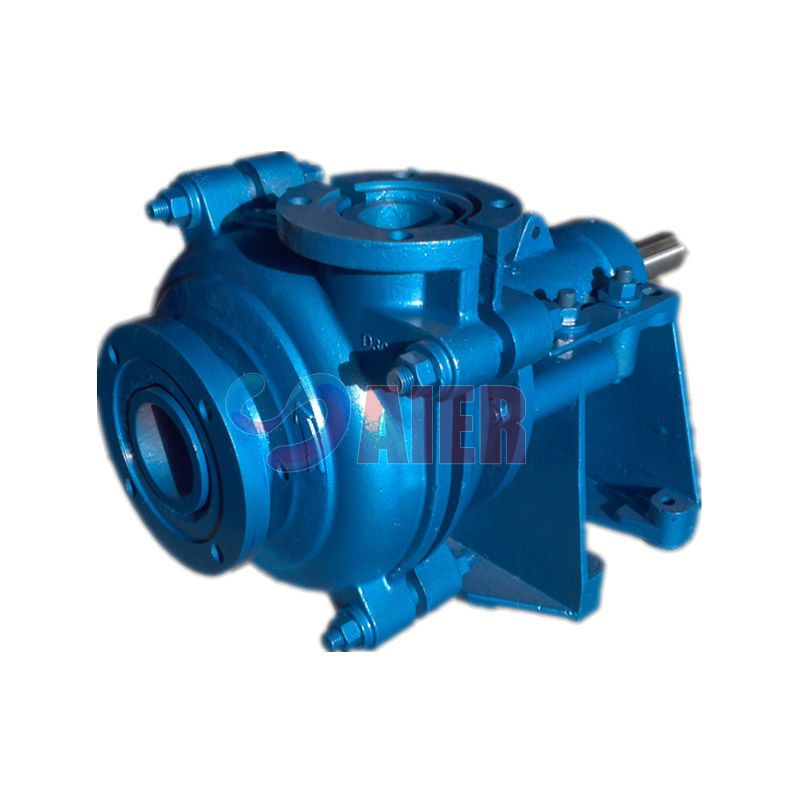9 月 . 23, 2024 00:47 Back to list
impeller of slurry pump
Understanding the Impeller of Slurry Pumps
Slurry pumps play a crucial role in various industries, especially in the mining, construction, and wastewater sectors. At the heart of these pumps is the impeller, a vital component that significantly influences the pump's efficiency and performance. This article delves into the functionality, types, and importance of the impeller in slurry pumps.
Functionality of the Impeller
The impeller in a slurry pump is designed to transfer energy from the motor to the fluid being pumped. In the case of slurry pumps, this fluid is often a mixture of water and solid particles, which can be highly abrasive and corrosive. The impeller rotates at high speeds, creating a centrifugal force that propels the slurry through the pump and into the piping system. The design of the impeller affects the flow rate, pressure, and overall efficiency of the pump.
Types of Impellers
There are several types of impellers used in slurry pumps, each tailored for specific applications and types of slurries.
1. Open Impellers These impellers have a simple design with no shroud covering the blades. They are ideal for pumping slurries with large solid particles, as their open structure allows for easy passage of these particles without clogging. However, open impellers may not be as efficient for fine slurry.
impeller of slurry pump

2. Closed Impellers In contrast to open impellers, closed impellers have a shroud that encases the blades. This design improves efficiency by allowing for a better seal and more controlled flow of the slurry. Closed impellers are commonly used for finer slurries and applications where higher pressure is required.
3. Semi-Open Impellers Combining features of both open and closed impellers, semi-open impellers offer flexibility in handling different slurry types. They provide a compromise between efficiency and the ability to handle larger solids, making them suitable for a wide range of applications.
Material Considerations
Given that slurry pumps often handle challenging materials, the choice of impeller material is critical. Impellers can be made from various materials, including rubber, hardened chrome, and stainless steel. The material selected will depend on the characteristics of the slurry, such as its abrasive nature and chemical composition. For instance, rubber impellers are commonly used in less abrasive slurries, while hardened materials are preferred for more aggressive applications.
Importance of the Impeller
The impeller is fundamental to the performance and longevity of a slurry pump. A well-designed impeller reduces wear and tear on the pump components, minimizing maintenance costs and downtime. Furthermore, an efficient impeller design can enhance the pump's ability to move large volumes of slurry at a consistent pressure, which is essential for productivity in industrial processes.
In conclusion, the impeller of a slurry pump is a critical component that directly impacts the pump's efficiency, performance, and lifespan. By understanding the types of impellers, their functions, and the materials used, operators can make informed decisions that enhance the reliability and effectiveness of slurry pumping systems. As industries continue to evolve and face new challenges, advancements in impeller design will play a pivotal role in optimizing slurry pump operations.
-
Durable Centrifugal Wastewater Pumps China Abrasives Pump Suppliers
NewsMay.21,2025
-
High-Quality Horizontal Centrifugal Slurry Pump China Factory & Supplier
NewsMay.21,2025
-
China Slurry Pump Rubber Parts - Durable & Custom Solutions
NewsMay.20,2025
-
Heavy Duty Vertical Froth Pumps - China Factories & High-Quality Suppliers
NewsMay.20,2025
-
High-Quality Excavator Dredge Pump Suppliers China Manufacturers
NewsMay.19,2025
-
China Slurry Pump Rubber Parts - Durable & Custom Solutions
NewsMay.19,2025
